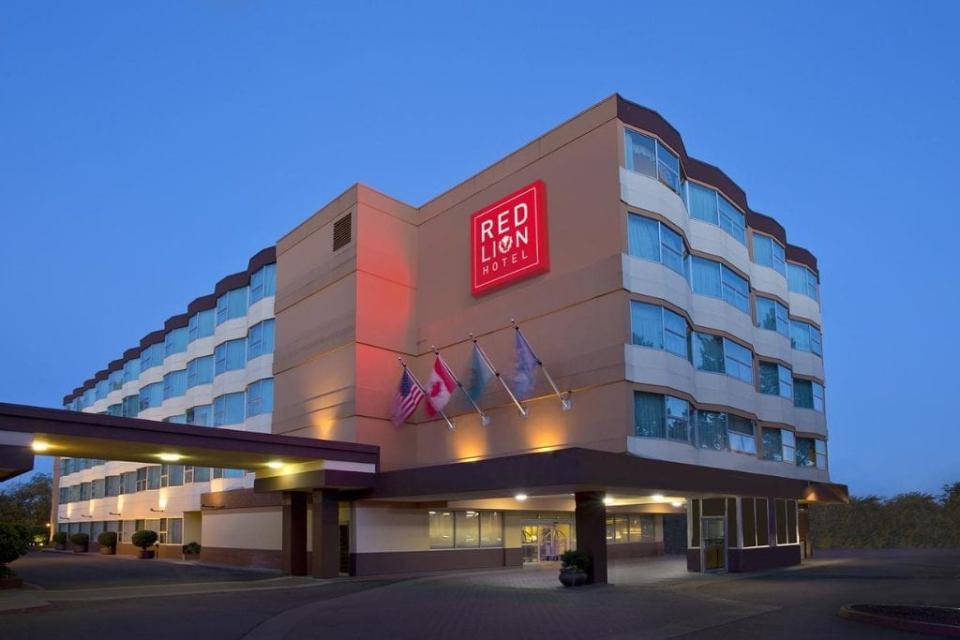Red Lion Launches a Subsidiary to Sell Software to Hotels

RLH, the Denver-based parent corporation of the Red Lion Hotels chain, is getting into the software sales business. The franchisor has launched a subsidiary, RLabs, to take the software the company has built to manage its properties and sell it to independent hoteliers.
The first white-label product, Canvas Integrated Systems, is a cloud-based hospitality management platform that includes basic revenue management tools and a switch for distributing rates and inventory to online travel agencies and other sales channels.
Red Lion (RLH) believes it has a competitive advantage over other tech vendors in the market. Hotels pay travel agencies fees to display their inventory, and RLH will extend to independent hoteliers using its software the preferentially discounted commission rates it has negotiated for its branded properties.
RLabs has already migrated the first independent property, Monterey Tides, to its Canvas system. It has deals to provide services for “up to seven hotels.”
Fighting Words
RLH is defying the naysayers. On an earnings call with investors on Friday, executives saw this effort as a way to make money by “primarily targeting upscale independent hotels.”
“There’s a very long tail of independents, approximately 80,000 independent hotels throughout the world, that fit into this opportunity particularly in the upper upscale luxury and resort segments,” said RLH president and CEO Greg Mount.
Mount critiqued the technology solutions provided by soft brands as “being very limited and overpriced for independents.” He didn’t name names, but he implicitly knocked the technology offerings of organizations like Leading Hotels of the World, Preferred Hotels & Resorts, and Historic Hotels of America.
“Most importantly, we’re providing the service on a per-transaction fee model, which we believe can provide independent hoteliers and hoteliers operating under soft brands significant cost savings,” added Mount in an interview with Skift.
Mount said RLH is hopping on a broader, long-term trend in software services across industries, where software is increasingly being delivered on a transaction-based fee model. RLH says its billing model better suits the financial needs of independent hotelier compared to the up-front charges, flat percentage fees, and subscription billing models used by many legacy tech providers and other hotel franchisors.
“We’ve on-boarded lots and lots of franchisees, and we keep noticing a pattern when we look at their books which is that they’re often overpaying for technology,” Mount said.
A Pipe Dream or Savvy Monetization?
Many hotels and other travel suppliers long to recoup the investment they make in in-house technology by trying to license it to others. Choice Hotels has since 2013 offered its property-management system to other hotels. About 700 non-Choice hotels use the core services of its SkyTouch Technology subsidiary, in addition to all of Choice’s thousands of U.S.-based properties.
Similarly, Delta Air Lines licenses out a version of its AIR4 passenger service system to Virgin Atlantic, while late last year Lufthansa built a software subsidiary.
However, the conventional wisdom is that the odds are against a parent company whose primary focus is running a travel business also to run a tech company. Split priorities can make it tough to provide the resources, capital, and management attention needed to scale up a software business.
Some travel suppliers choose to spin out the tech subsidiaries instead. Last month Standard Hotels said it had spun out a unit that was working to build a mobile-first online travel service for independent and boutique hotels, One Night.
A Noisy Tech Market
Many technology vendors have built specialized tools for hoteliers. Some companies, such as Duetto, IDeaS, and Rainmaker, specialize just in revenue management software using the latest in data science. Can RLH’s offerings, such as its RevPak revenue management tool, really compete over time with the niche players? It’s an open question.
However, Mount pointed to the favorable terms it has with online travel agencies that it can pass along to independents as a competitive edge. He also said that many market tools are aimed either at large chains or limited-service properties, but there is a gap in the middle for upscale independents.
The RLH built its tech specifically to make it as fast as possible to address that type of property’s needs without the day-to-day grind generally associated with the back-end of running a hotel, while tech vendors tend to offer a one-size fits all solution, Mount argued.
While that may be true, many hotel tech vendors, such as Cloudbeds, Hotelogix, Oracle Hospitality, Shiji’s StayNTouch, and Windsurfer, have much more experience at selling software than a hotel company, which will face an uphill climb in mounting a sales effort. Choice, for example, found sales hard enough that in 2017 it considered selling its SkyTouch division, though lately it has been investing more in the unit.
Skift Research subscribers can get more context by reading The State of the Hotel Tech Stack report, featuring interviews with 23 industry stakeholders.
Subscribe to Skift newsletters covering the business of travel, restaurants, and wellness.
